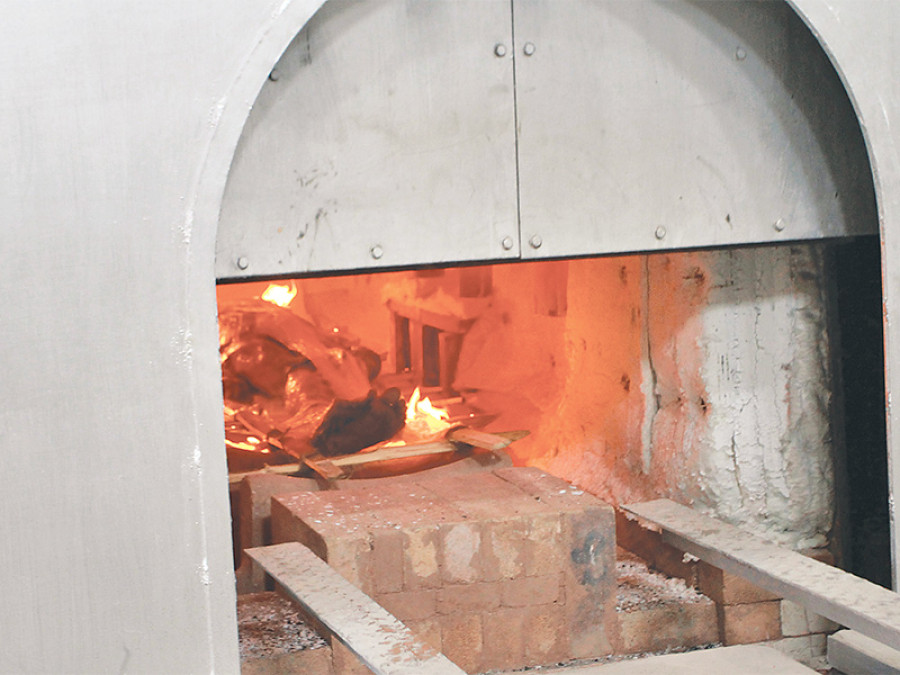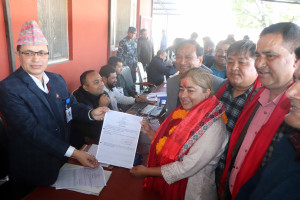Miscellaneous
Electric crematorium: PADT cremates two bodies on trial
The Pashupati Area Development Trust has successfully conducted the trial operation of the recently completed electric crematorium. Two unidentified bodies of earthquake victims recovered from Bhaktapur and Dhading were cremated at Pingalasthan on Thursday and Friday, said PADT Member Secretary Govinda Tandon.
Anup Ojha
The Pashupati Area Development Trust has successfully conducted the trial operation of the recently completed electric crematorium. Two unidentified bodies of earthquake victims recovered from Bhaktapur and Dhading were cremated at Pingalasthan on Thursday and Friday, said PADT Member Secretary Govinda Tandon.
The bodies were kept at the morgue of the TU Teaching Hospital and since no one came to claim them for months, the District Administration Office had requested the hospital to hand over the corpses to the PADT so that they could be used to test the facility.
“It took nearly an hour to burn each body which had been kept in a refrigerated chamber for four months, otherwise it won’t take more than 45 minutes,” Tandon said.
The PADT plans to formally inaugurate the cremation facility in the first week of Aswin (mid-September). The facility has two incinerators which cost Rs26 million. They were built by Indomen Engineering Service in Kolkata. The facility will receive uninterrupted power supply. The PADT has also installed a generator in case of power failure. Tandon said electric crematorium is not only cost-effective, but also eco-friendly.
On an average around 300 kg firewood is needed to cremate a body on a pyre which costs around Rs 7,000.
“We have not set the rate yet, but the cost of incinerating a body will definitely be much lower,” Tandon said. “We are planning to come up with the overall cost of using the facility within this week.”
Are people ready to cremate their loved ones in an electricity-run furnace instead of traditional funeral pyre? Most think not, but Tandon believes it will catch on, eventually.
“We have made arrangements whereby one can perform the Hindu funeral rites inside the facility, so it should not be a problem in terms of rituals,” Tandon said. “Besides, the Aryaghat will also be in operation for traditional cremation.”




 5.12°C Kathmandu
5.12°C Kathmandu.jpg)










